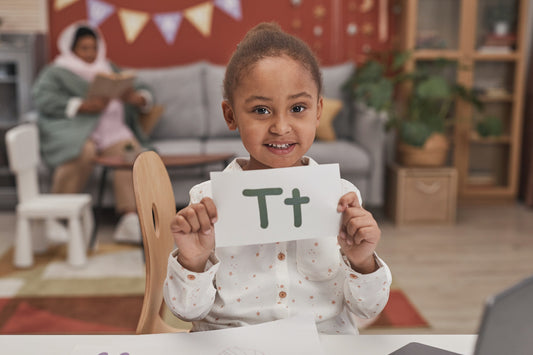Why Pretend Play Is Important To Your Child’s Development

Even in our increasingly digitized world, imagination-driven play still remains the most ideal way for kids to learn and interact with the world.
And as more parents turn to screens to distract their younglings, it’s even important that we understand why pretend place is necessary to the healthy development of your children.
WHAT IS PRETEND PLAY?
Also known as fantasy play or make-believe play, pretend play is when a child uses their imagination to see themselves a real or fictional character. This also extends to their environment such as turning the living room into a more exciting setting like a pirate ship, jungle, or a futuristic city.
Toys play an important part in this as well. Helping children immerse into their new world or character by giving them the tools to mimic what they do. These can range from simple open-ended toys like blocks to toys with realistic toys such as toy vehicles.
Regardless of toys, what’s important and the true essence of pretend play is that children utilize their mind to have fun either by themselves or with others.

WHY ENCOURAGE PRETEND PLAY?
NURTURES CREATIVTY
The first thing that comes to mind when discussing pretend play is how it enhances a child’s creativity. This is mainly due to them stimulating their imagination, coming up with various scenarios derived from what they have learned or observed.
It also gives the ability to think for themselves, often doing away with constraints we place on them and letting their mind safely wander. The result is more flexible and out of the box way of thinking, in addition to the more usual artistic and inventive streak we associate with creativity.
IMPROVES COMMUNICATION SKILLS
With make-believe play, it’s inevitable that you will hear children use words to describe their activities. While some are recognizable most will most likely be amalgamations of words they picked up as part of daily life be it from mom, dad, siblings, friends, strangers, or the TV.
Continued use of words aids in the development of their communication skills through learning their meaning and how to use them properly in conversation. This also helps in understanding the connection between spoken and written language which will aid them later as they begin to read and write.
PROMOTES INDEPENDENCE
One of the biggest benefits of pretend play is the minimal supervision required from parents. It allows them to make their own stories, follow their own rules, and explore new possibilities. This in turn helps them forge a sense of independence and develop critical thinking.
Make-believe also helps them develop problem solving skills. It’s inevitable that during play, they will experience hurdles such as things not going to plan or unforeseen events. Allowing them to solve these simple issues makes them better equipped to tackle the world ahead.
BOOSTS PHYSICAL DEVELOPMENT
Physical growth is another major benefit of pretend play. Being hands-on, they are more likely to exert effort in order to have fun be it through building or acting out a particular character. This not only helps in bone and muscle development but also hand-eye coordination
The rough and tumble that comes with playing pretend also let kids understand the limits of their physicality in a safe and healthy manner. This makes it easier for them to avoid any potentially harmful antics in the future whether it be at home or in school.
ENHANCES EMOTIONAL AND SOCIAL SKILLS
Pretend play is the perfect avenue for early socialization. Not only does it teach children the value of sharing and cooperation but it also lets them figure out what kind of people they want to surround themselves with.
Playing together also gives them the opportunity to deal with others’ feelings and learning how to properly respond. This not only develops their empathy but also their self-awareness and self-esteem.

TOYS FOR PRETEND PLAY
While pretend play doesn’t necessarily require toys, they do make it easier for children to come up with ideas and also add more to the immersive experience.
TOY VEHICLES
These toys are based on real-life and correspond with specific professions making them ideal for kids who want to mimic these people and their jobs such engineers, garbage collectors, and traffic officers.
CHECK OUT: Mini Construction Toy Vehicles
BUILDING TOYS
Building toys are open-ended and thus rely more on the child’s imagination. They are are ideal if you want to develop your child’s creativity, memory, and problem solving skills as the possibilities are basically limitless with these type of toys.
CHECK OUT: Building Toys
TOY TOOLS
Similar to toy vehicles, these are mainly used to mimic professions but provide a more realistic type of play. Toys such as handyman tools, medical equipment, and kitchen utensils help kids understand how different jobs work while also allowing them to experience them in a fun and safe way.
CHECK OUT: Wooden Thinker Chair, Wooden Toolbox Set, Wooden Cleaning Set



